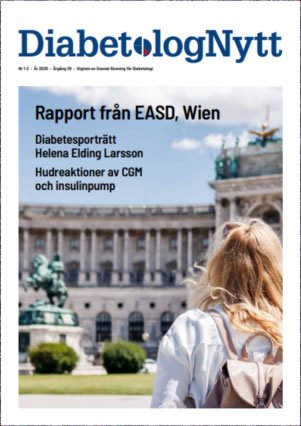EASD: ’Gliptin’ Diabetes Drugs May Be Heart Savers
This report is part of a 12-month Clinical Context series.
By Ed Susman, Contributing Writer, MedPage Today
LISBON — While searching for potential cardiovascular risks among studies involving dipeptidyl peptidase-4 (DPP-4) inhibitors in type 2 diabetics, researchers made a surprising discovery –- treatment with the so-called gliptin class appears to protect the heart.
After reviewing outcomes in 53 clinical trials involving more than 33,000 patients, it was found that patients in the gliptin arm had a 30% relative risk reduction of suffering a major cardiac event, reported Edoardo Mannucci, MD, director of the Diabetes Agency at Careggi Teaching Hospital in Florence, Italy.
”This was an unexpected and surprising finding,” Mannucci told delegates to the annual meeting of the European Association for the Study of Diabetes in one of the final presentations of the conference.
”The results of the present meta-analysis suggest a possible protection from cardiovascular events, which is consistent with previously reported meta-analyses based on patient-level data,” Mannucci said.
Another surprise was that studies of less than 52 weeks – in other words, short-term reports, ”still yielded significant results, which suggests the possibility of some unconventional cardiovascular protective effects.”
Mannucci and colleagues set out to perform their meta-analysis in response to the U.S. Food and Drug Administration requirement that drug companies assess cardiovascular effects from new diabetes drugs.
Recent concerns about cardiovascular risk with rosiglitazone (Avandia) and cancer risk with dapagliflozin have spurred regulatory agencies to take a harder, longer look at possible harms from diabetes drugs.
The FDA wants drug developers to exclude the possibility of a 30% increased risk of cardiovascular events in comparison with placebo and/or other treatments.
Mannucci set out to determine the cardiovascular history of gliptins. He gleaned articles from MedLine and Embase for published trials of vildagliptin (Galvus); sitagliptin (Januvia); saxagliptin (Onglyza); alogliptin (Nesina); linagliptin (Tradjenta) and dutogliptin. The researchers included all studies reported through March 2011. They also combed through unpublished records found at the www.clinicaltrials.gov website.
After reviewing almost 400 documents, the researchers found 53 citations that fulfilled their criteria of randomized clinical trial data with at least a 24-week trial period among type 2 diabetic patients in which the gliptins were compared with placebo or with other drugs.
The trials enrolled 20,132 patients who were treated with gliptins and 13,569 who were treated with comparator regimens or placebo. The researchers found reports of cardiovascular events in 42 of the trials – 137 events occurred in those people assigned to the gliptins and 120 events in the comparator arms.
When the calculations were in, Mannucci said the risk of having a major cardiovascular event on a gliptin was 31.1% less than if the person had been assigned to placebo or comparator arm (P=0.006).
If the trial was less than a year in duration, the risk of experiencing an event was decreased by 37.4% for those on a gliptin compared with a comparator drug (P=0.008).
Mannucci said that his study has limitations as do most meta-analyses, and he could not rule out that long-term use of the gliptins might have detrimental effects. However, any way the data are examined, treatment with the gliptins reduced cardiovascular events around 30%, he said.
”This is an encouraging and reassuring study,” said session moderator Carolyn Deacon, MD, from the University of Copenhagen in Denmark. She told MedPage Today, ”I wasn’t surprised by these results. The clinical trials seemed to be heading in this direction.”
Lamanna C, et al ”Dipeptidyl peptidase-4 inhibitors and cardiovascular events: a protective effect?” EASD 2011; Abstract 244.
Nyhetsinfo
www red DiabetologNytt
Publicerad: |2011-09-19|

